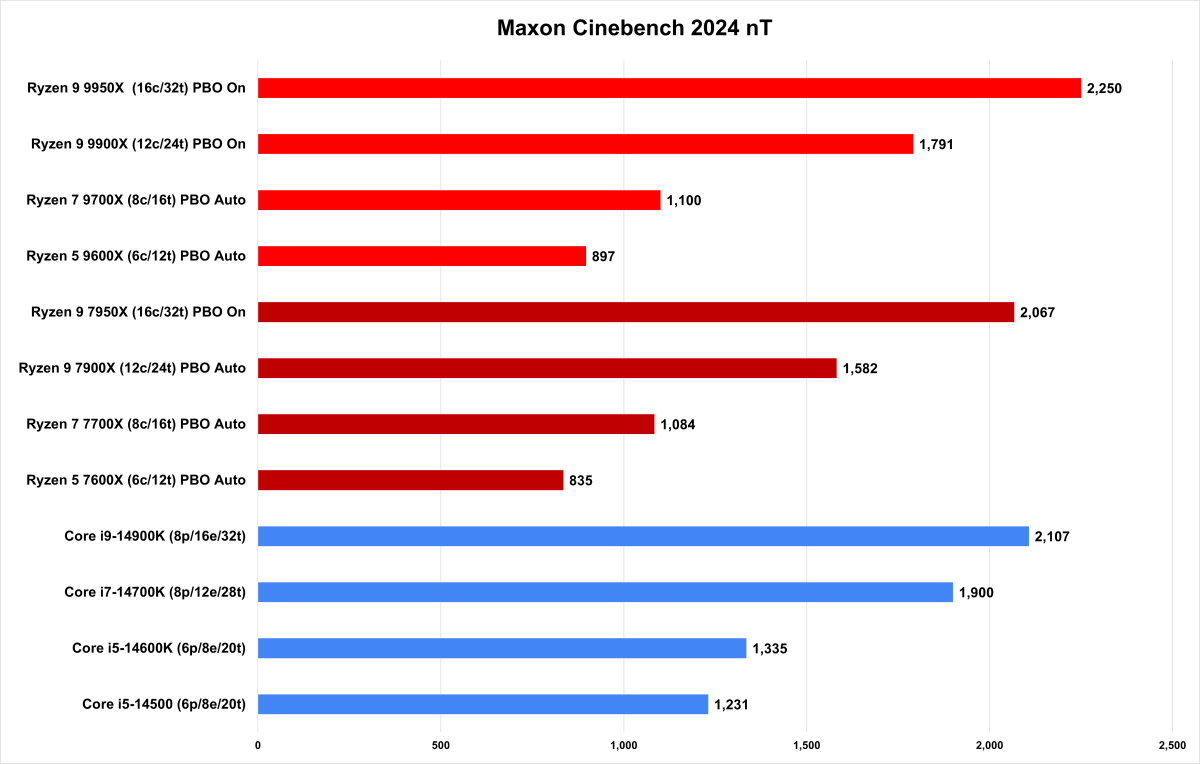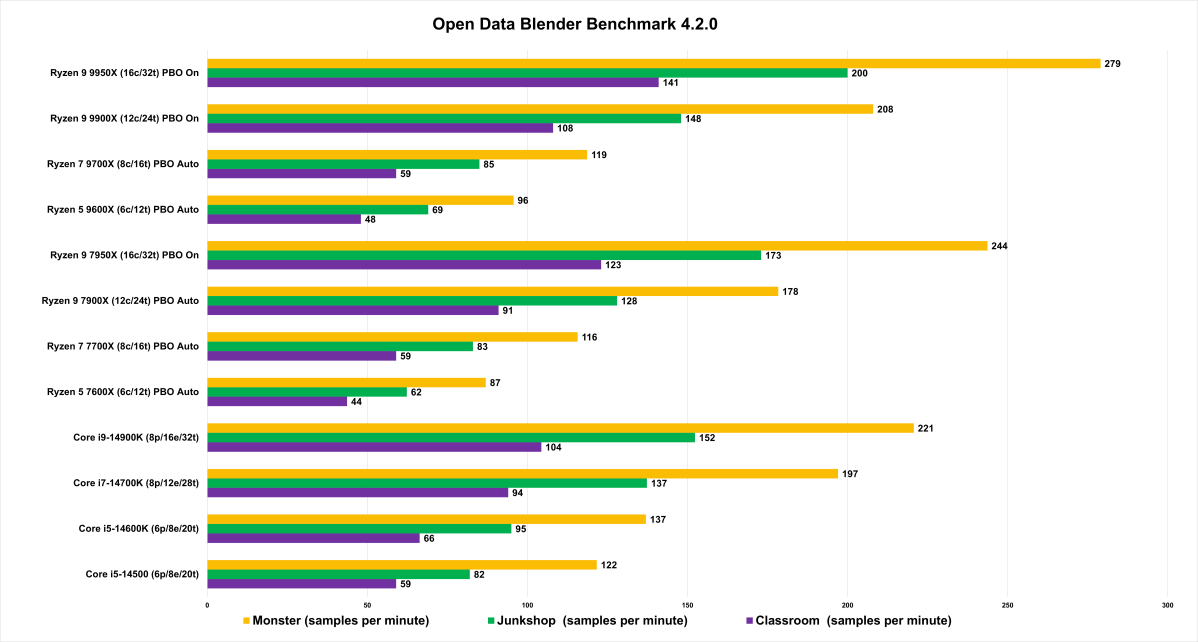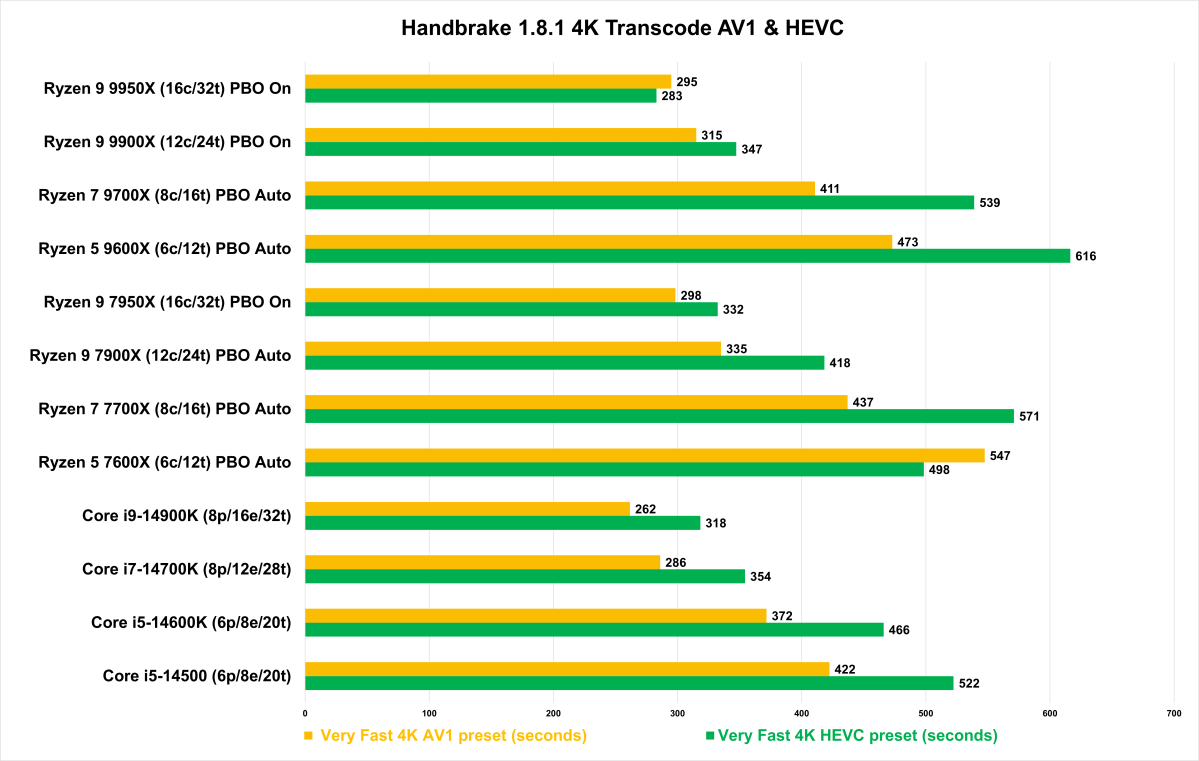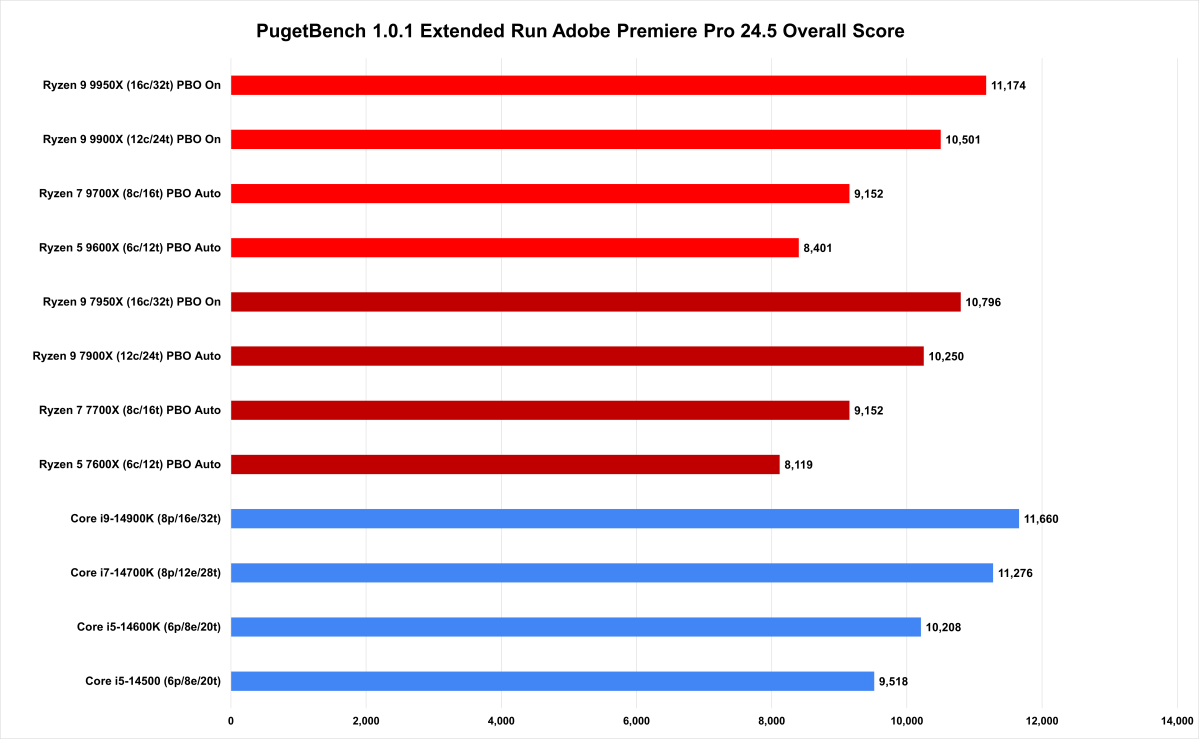After a brief delay, AMD’s Ryzen 9000 hit shelves earlier this month—but to everyone’s surprise, the first processors came with caveats. Despite offering plenty to like, the $279 Ryzen 5 9600X, $359 Ryzen 7 9700X, $499 Ryzen 7 9900X, and $649 Ryzen 9 9950X also sported uneven performance improvements.
The reasons for those benchmark results are nuanced, however. We at PCWorld even delayed the release of
Big improvements in single-core performance
The benchmark numbers for single-core performance are similar across the initial lineup of Ryzen 9000 processors—and those results put them at the top. In Cinebench R23, one of the rendering benchmarks we use to put CPUs through their paces, the 6-core, 12-thread Ryzen 5 9600X outdid the 7600X by 13 percent. Similarly, the 8-core, 16-thread Ryzen 7 9700X posted an almost 15 percent increase over the 7700X.
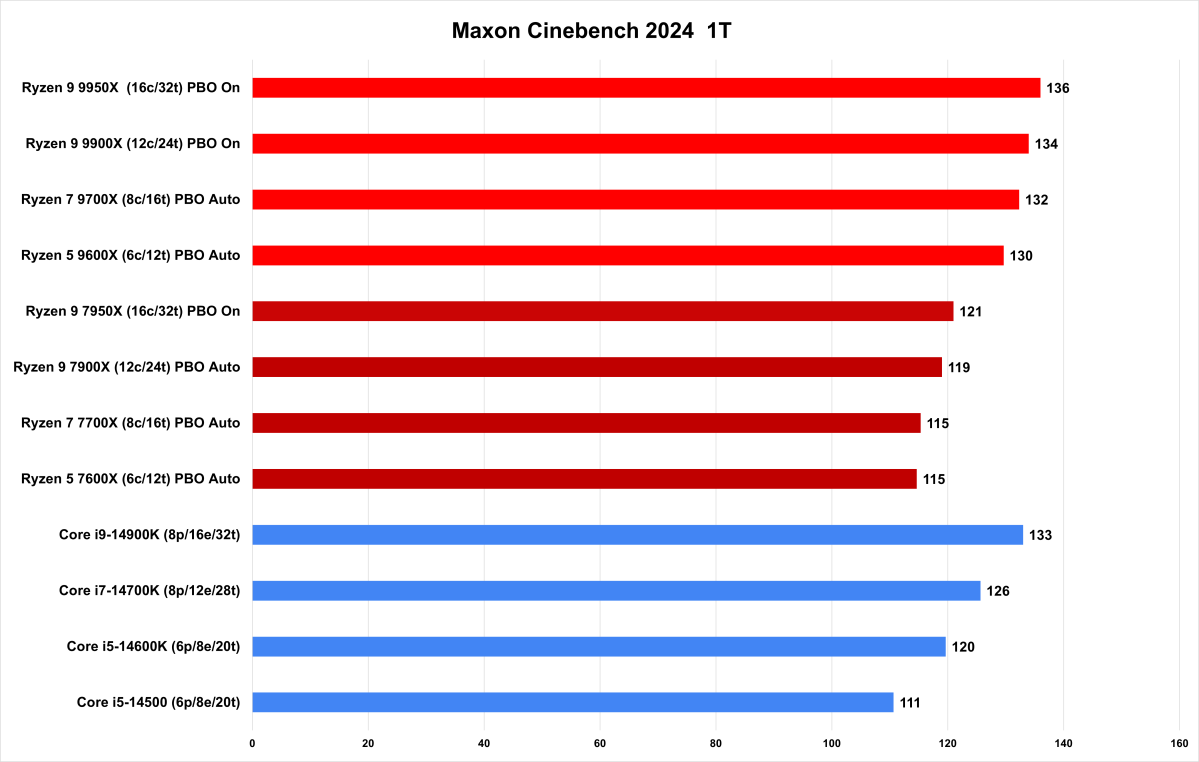
Adam Patrick Murray / Will Smith / PCWorld
Adam Patrick Murray / Will Smith / PCWorld
<div class="scrim" style="background-color: #fff" aria-hidden="true"></div>
</div></figure><p class="imageCredit">Adam Patrick Murray / Will Smith / PCWorld</p></div>For their part, the 12-core, 24-thread Ryzen 9 9900X and 16-core, 32-thread Ryzen 9 9950X offer an almost 12 percent uplift over their Ryzen 7000 predecessors. Overall, these gains are solid improvements—and give AMD a slim edge over Intel.
Against the Core i7-14700K, the 9700X offers a 4.7 percent boost in performance, and is neck-and-neck with the more powerful Core i9-14900K. Meanwhile, the 9600X pulls ahead of the Core i5-14600K by a little over 8 percent, which is a nice win for users mindful of their budgets. The 9900X and 9950X basically hold even with the Core i9-14900K—a step up compared to Ryzen 7000’s disadvantage against Intel’s 14th-gen chips.
But lackluster gains in multi-core performance
However, Ryzen 9000 loses some shine when you look at its multi-core performance. Benchmark results can be notably affected by motherboard settings—and the way many reviewers test (including PCWorld) doesn’t show the silicon’s full range.
During our initial round of testing, the 9700X gave essentially the same performance as the 7700X in Cinebench R23’s multithreaded test—the thin 1.48 percent doesn’t exceed a normal testing margin of error (usually between 2 to 3 percent).
For Cinebench and Blender, longer bars indicate better performance. For Handbrake (which evaluates speed of test completion), shorter bars are better.
The outcome was better for the 9600X, with a roughly 7 percent increase in Cinebench compared to the 7600X, but that uplift is modest compared to previous generational jumps. Typically, 15 to 20 percent begins to push the envelope (as seen in single-core performance).
This story repeated with similar effect in our other rendering and encoding benchmarks used to evaluate multi-core performance. When looking at such minimal gains, Ryzen 9000 lags behind Intel’s 14th-gen processors. Opting for a 14700K is a whopping 72 percent performance increase in Cinebench over the 9700X, while a 14600K is an almost 60 percent boost compared to the 9600X. For anyone who needs strong multi-core performance (whether for intensive work like rendering or just heavily threaded games), Intel can look like your better bet—provided you’re comfortable with the recent concerns around 14th-gen chip performance and longevity.
But staunch Team Red fans shouldn’t despair just yet—because this isn’t the full story around multi-core performance.
Motherboard settings matter
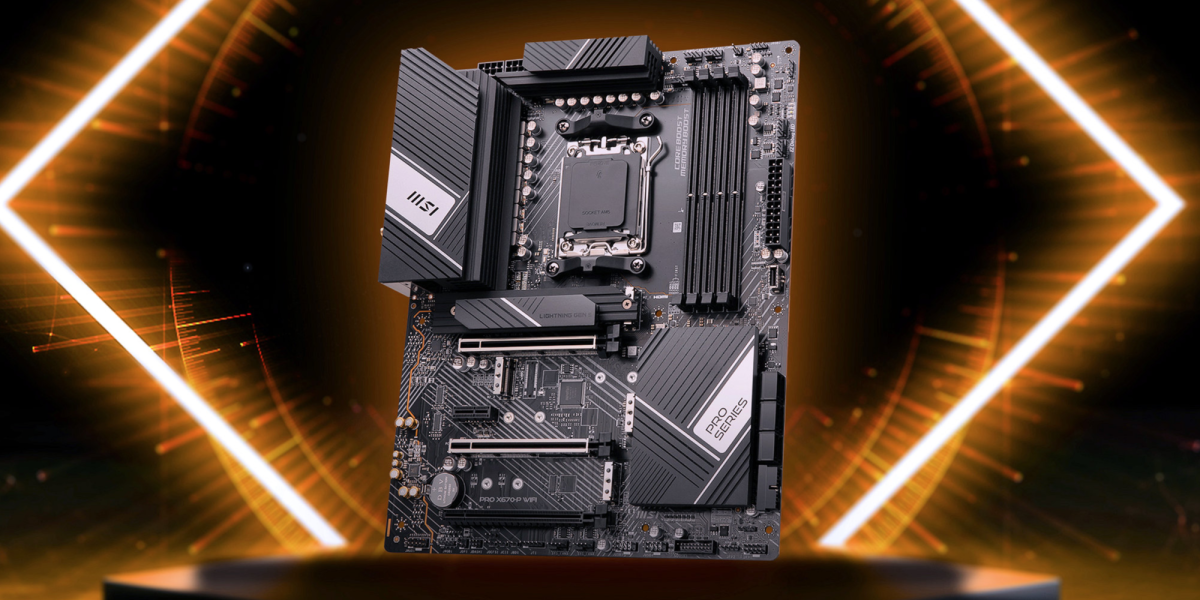
MSI
<div class="lightbox-image-container foundry-lightbox"><div class="extendedBlock-wrapper block-coreImage undefined"><figure class="wp-block-image size-large enlarged-image"><img decoding="async" data-wp-bind--src="selectors.core.image.enlargedImgSrc" data-wp-style--object-fit="selectors.core.image.lightboxObjectFit" src="" alt="MSI X670E" class="wp-image-2237157" width="1200" height="600" loading="lazy" /></figure><p class="imageCredit">MSI</p></div> </div></figure><p class="imageCredit">MSI</p></div>Two settings in your motherboard UEFI (sometimes still colloquially referred to as the BIOS) can greatly influence how well Ryzen 9000 performs: Precision Boost Overdrive (PBO) and RAM voltage.
Of the two, PBO plays a greater role in whether you’ll see merely meh gains, or if you’ll get closer to what AMD promises. When enabled, it dynamically feeds more voltage to the processor for clock speed increases—which provide better performance.
Not all motherboards enable PBO by default, so if you buy a Ryzen 9000 processor and want the most out of it, you’ll need to go into UEFI and ensure it’s on.
Additionally, AMD recommends running RAM at a voltage of 1.2V, rather than 1.25V (a common setting). Similar to PBO, the latter voltage can be a default on some mobos—like on PCWorld’s own test hardware, a ASRock X670E Taichi.
Changing these settings isn’t difficult, but most users are accustomed to dropping in a chip and moving on. These necessary tweaks make Ryzen 9000 feel finickier than previous generations, which didn’t need such precise handling. However, according to AMD, part of the reason for this outcome is due to the lower TDP of the Ryzen 5 and Ryzen 7 processors. With a tighter ceiling on power efficiency, the balance between performance and acceptable operating temperature is a finer line to walk.
AMD’s best chip can beat Intel’s in multi-core workloads
Login to add comment
Other posts in this group
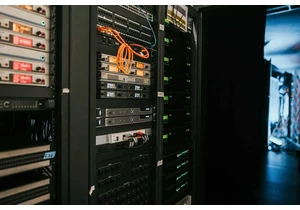
How badly does AI harm the environment? We now have some answers to t
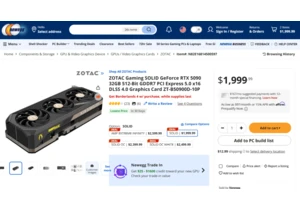
It’s been seven months since Nvidia launched its flagship RTX 5090 ca
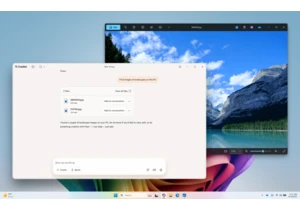
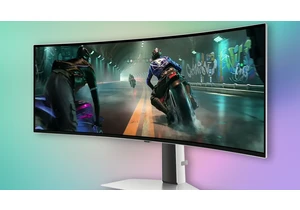
Samsung’s monitors tend to come with a bigger price tag than a lot of

Life is noisy and hectic, and sometimes you just want to focus on wha
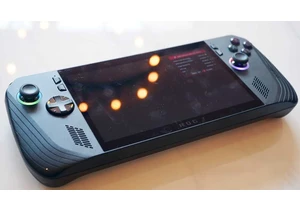
The most exciting thing about the ROG Xbox Ally handheld, at least fo
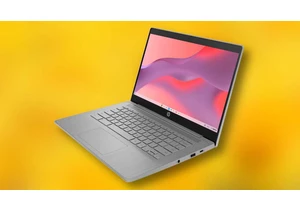
As another year of school kicks off, you may be scrambling for a dece
